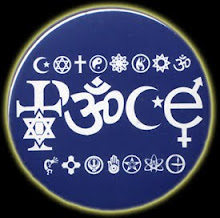First thing is first, who exactly is Graham Hancock? Yes, he is the author of
Entangled, released this October in the U.S., but he is also the author of four other,
very different, novels. These novels include:
The Sign and the Seal, Fingerprints of the Gods, and Supernatural:Meetings With the Ancient Teachers of Mankind (about 700 pages!!). These novels, along with a few unmentioned, have been written over the course of twenty years and Graham has established himself as a premier renegade of classical archaelogical theory. For instance,
Supernatural puts forth a hypothesis that our cave-dwelling ancestors ate mushrooms regularly, traveled to the "spirit world" under their influence, and lastly transcribed their experiences in the form of cave art (found today on several continents). There is solid, and I mean rock solid, evidence supporting this claim - a claim that goes against modern archaelogical theory regarding our "primitive" ancestors. Further, Graham supposes in
Supernatural that experiences gained from these mushrooms may have created language/thought (whichever comes first is still hotly debated).
You may now be wondering why I am babbling about
Supernatural when this blog is meant to cover the first 100 pages of his new novel
Entangled. Well there are two reasons.
First, I wanted to expose you to the type of material this renegade scientist has been working with for over twenty years. This material, published in several highly regarded books is not to be taken lightly, or a matter of truth, but to be looked upon with caution.
Second, the novel
Entangled incorporates ideas from Graham's previous work, including what I have spoken regarding
Supernatural, into narrative (rather than scientific/present-the-evidence) form. This may be the most important point regarding the novel
Entangled. After reading 100 pages, I believe that you do NOT need to have a previous knowledge of his work to understand his radical hypotheses. They are laid out clearly between chapters - in the experiences of teenage girl Ria (living in 22,000 B.C.) and in the experiences of teenage girl Leoni (living in present day California).
Ria is part of The Clan, a group of our earliest
homosapien ancestors, living amongst The Uglies (Neanderthals). It is clear from the beginning that several members of The Clan do not like The Uglies, or their existence for that matter. The Clan has their reasons for slaughter, which The Uglies do not understand (for reasons that will become clear if you read the novel). The Uglies have their reasons for peace (which will also become clear if you read the novel). Both of these hyphenated reasons are very important because they relate back to Graham's previous published scientific work. Ria is caught in-between. Things happen to Ria, The Clan, and The Uglies that prove to be most interesting as the pages keep turning. Actually, as I read, I was struck by how similar the suspense was to Dan Brown's classics,
The Da Vinci Code, Angels & Demons, and
The Lost Symbol. Each chapter of
Entangled is about 2-4 pages, like Browns' works, and this kind of makes you feel accomplished after an hour of reading and ten chapters down.
Leoni lives in present day Malibu, California, and is the daughter of wealthy parents. So wealthy, in fact, that she makes instant headlines in the nation's top entertainment news (
The National Enquirer, etc...). The reasons behind
why she made the news sets up the motivation for Leoni for the rest of the novel. Actually, her special trip while lying on the hospital operating table is what sets up the motivation for Leoni for the rest of the novel. Who knew she would have been committed to a mental institution for saying such things. I did! Once again, the suspense of the story of Leoni (seperate from Ria) is similar to that of Browns' works. You are left hanging at the end of each chapter with a surprise you never imagined, a surprise that once you see you have to know what happens next.
Finally, each chapter of the first 100 pages is devoted entirely to either Ria or Leoni. I'm not sure if this is going to change as the novel progresses, but my opinion is that is will and that is why the novel is entitled
Entangled. What does
Entangled mean? How will these characters become entangled, if they do? Can they? (I mean, one lives in 22,000 B.C. and the other in present day Malibu... but it is a novel and the author has freedom). Anyways, I received this novel for Christmas and believe it is definately as good of quality, if not better, than
The Da Vinci Code, Angels & Demons, and
The Lost Symbol.
note: I first heard of
Entangled this October while researching David Wilcock's
Divine Cosmos website (found here
http://www.divinecosmos.com/).
